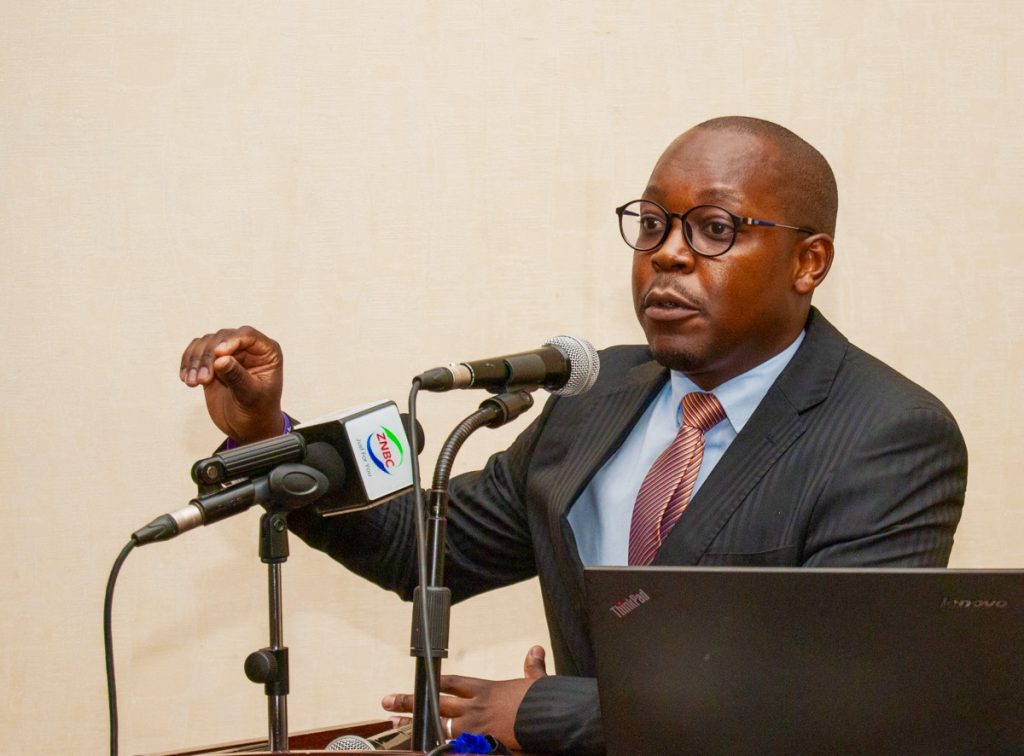As Africa’s second largest copper hotspot readies for its annual estimates of revenue and expenditure presentation for 2020 on the 27 September, calls for the withdrawal of the proposed sales tax regime earmarked for next year have ebbed higher. Mining lobby group the Zambia Chamber of Mines has called for a rethink of the proposed sales tax regime. Speaking in at an information sharing meeting on findings of a recently published report dubbed, A Tax Too Far: The Economic Impact of Zambia’s Proposed Sales Tax, Chamber of Mines President Goodwell Mateyo intimated that a sales tax will leave the mining industry uncompetitive.
Mateyo further stated that a tone of ore costs more under a sales that value added tax regime.
The report has advised the state to withdraw the proposed ‘hybrid’ sales tax in its current form, as it will make the countries mining industry uncompetitive in comparison with its international mining peers.
“The cascading effects of sales tax will result in huge price increments, and we have seen that in some typical examples drawn from actual potential transactions in a mining setup or value chain. Long supplying chains will be worse off, and to mitigate against this impact industries such as mining and manufacturing will obviously reduce the value chains by cutting out local suppliers, distributors and will instead import directly. The effect of this will be a reduction of jobs, and an incentivisation of direct importation at the expense of local intermediaries and local agents who create employment and pay taxes locally,” he added.
The aim of increasing overall tax receipts by introducing the proposed sales tax, as well as doing away with a system of VAT refunds that has proved difficult for the Zambia Revenue Authority to administer, would not materialise, said the chamber.Instead, the tax burden on any given transaction will increase, but as prices go up, the number of transactions would go down as goods and services become unaffordable. This phenomenon of tax rate increases resulting in declining tax receipts and lower economic activity is well understood by economists based on the Laffer Curve model.However, if the VAT system is retained, it will require addressing of the debilitating problem of the non-payment of VAT refunds that has wreaked havoc in recent years with the cashflow of Zambian businesses, great and small, said the chamber.
The chamber also called on government to bring the country’s mining tax regime into line with international best practice, where mineral royalty tax is deductible before computing corporate income tax.
“We have asked that the government consider reverting to the 2018 mining fiscal regime. In the event that they are not inclined to go back to that regime, we have asked for some changes in the current regime, for instance, the mineral royalty rates be capped at 7.5 percent,” said Mateyo.
“Our ultimate conclusion following from the commissioning of this report and study, is that we need to remain with the VAT tax regime that we have in place and avoid effecting the sales tax altogether,” he added.
Zambia grapples with rising debt of which service remains a pressure point. The 2020 budget is expected to address opportunity areas for which the state will leverage off to mobilize resources. These areas include the Mines which spell the countries mainstay and key economic driver through tax reforms that will widen the resource base for the nation. However a higher tax burden on the Mines has been said to constrict the propensity for investment exploration.
BT

